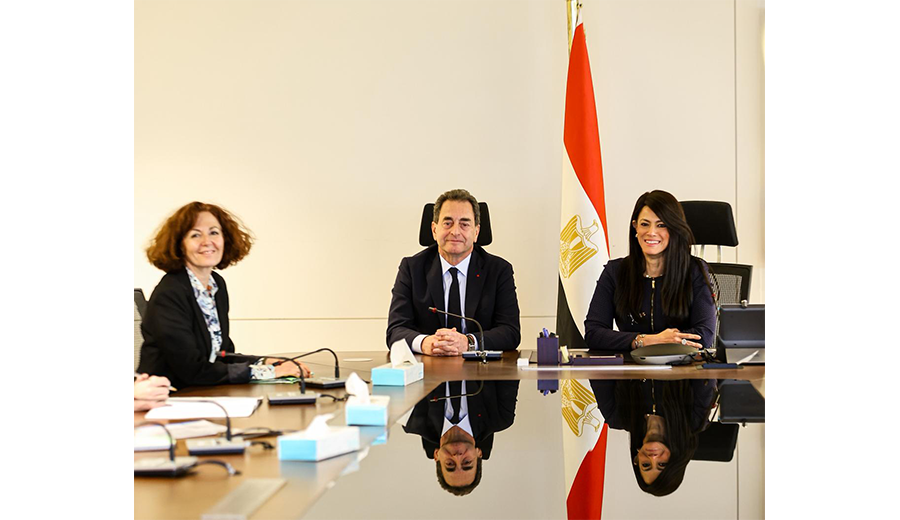Egypt's Deputy Minister Chairs Meeting on National Financing Strategy

25 June 2024
Dr. Ahmed Kamali, Deputy Minister of Planning and Economic Development, chaired the meeting of the technical committee responsible for preparing and monitoring Egypt’s Integrated National Financing Strategy. The meeting was attended by Dr. Mona Essam, Assistant Minister for Sustainable Development, representatives from the United Nations Development Programme (UNDP), the UN Resident Coordinator's Office in Egypt, and relevant ministries.
During the meeting, Dr. Ahmed Kamali emphasized the importance of financing for achieving sustainability, whether through the Sustainable Development Goals (SDGs) or Egypt’s Vision 2030. He noted that the Egyptian government recognized this issue in its second Voluntary National Review in 2018, identifying financing as a primary challenge in achieving the SDGs. Kamali added that the financing problem is not unique to Egypt; all countries must focus on financing to achieve sustainable development, especially in the face of global crises that have made financing a critical issue requiring significant attention.
Kamali further highlighted that the meeting underscored Egypt's commitment to the financing issue, discussing the need to transition from mere resource transfer to sustainable financing, which involves structuring financial flows to achieve common goals. He stressed that the series of workshops and technical meetings between the concerned parties demonstrates Egypt's organized approach to addressing the financing challenge, not just by discussing the problem but by taking effective actions to confront it.
Kamali explained that the Egyptian state has focused on five sectors: health, education, sanitation, transportation, and social protection, with gender equality and climate change as cross-cutting themes. He emphasized that the focus is on sectors that genuinely need financing, rather than those capable of attracting investments.
Dr. Ahmed Kamali also stated that the Integrated National Financing Strategy acts as a communication tool, highlighting Egypt’s approach to financing the SDGs. He noted that this document, based on Egypt's experience over the past three years, will evolve with further support from various UN agencies.
Kamali affirmed that it is time for the private sector to make impactful investments, as it is crucial for achieving the SDGs and Egypt’s Vision 2030. He reiterated the Egyptian government's commitment to increasing the private sector's share in the economy, as evidenced by initiatives like the State Ownership Document and investment plans, highlighting the importance of enhancing private sector participation for future growth.
Kamali added that Egypt has pledged to increase the private sector’s investment share from 28.2% in 2021 to 65% by 2030. By the end of this year, this share is expected to reach between 48% and 49%. He stressed the importance of cooperation between the government, civil society, and the private sector to achieve the SDGs, explaining that partnership means not relying solely on the government or the public sector but involving the private sector and civil society in financing efforts.









